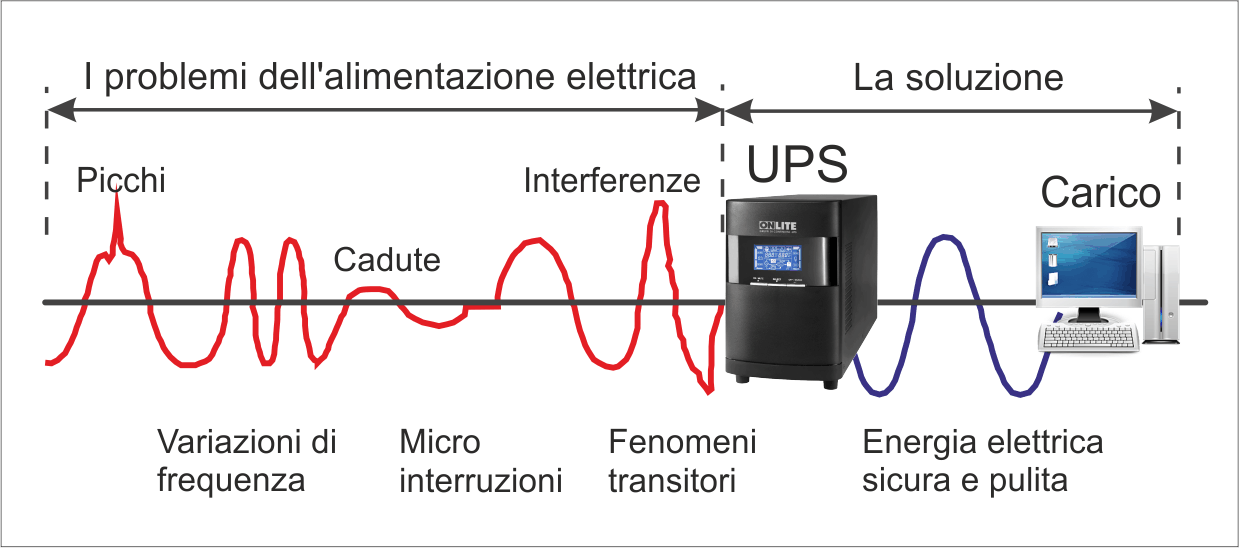Premise:
The modern user requires ever higher performance for computers and electronic systems in general. Manufacturers respond promptly with ever faster and more powerful electronic and computer products. Computers and equipment with higher processing speeds and construction complexity, however, need even more than a correct electrical supply, without the most imperceptible imperfection.

What is a UPS?
The abbreviation UPS means "Uninterruptible Power Supply" and is translated into Italian as a Continuity Group.
The UPS is an equipment that is placed between the power supply network and the devices to be protected, in order to supply energy to the equipment even in the absence of electricity.
There are different types of continuity groups (see the "Types of UPS" section) but those that ensure a supply free from any kind of disturbance are those defined as On-Line.
The UPS must not be confused with other devices such as, for example, voltage stabilizers, isolation transformers, surge suppressors, etc.
Why use an UPS?
Does the computer shut down or freeze for no apparent reason?
Do you work with valuable data that would cost time and money to replace if they were suddenly canceled following a temporary network failure?
Despite the high degree of reliability achieved by today's personal computers, these remain however vulnerable to fluctuations and drops in grid voltage.
The anomalies of the network voltage can cause the loss of the data that you are processing or even of entire files written previously.
An entire disk can be lost or destroyed if a disturbance occurs while writing is being performed.
If you have ever experienced one of these problems, or if you do not want to run into such problems, you will surely have to equip your system with a UPS.
Power supply without interruptions: illusion or reality?
There is no distribution line of electrical energy that is free of disturbances that can constitute a danger to the integrity and operational continuity of computers.
A recent study found that on our power line there are over 128 different kinds of disorders every month or more than 4 a day!
Here are the most common electrical disturbances that cause approx. 80% of computer problems:
- Voltage spikes
- Surge
- Frequency variations
- Voltage drops
- Micro-breaks
- No input mains (black-out)
- Interference - Noises
- Transient phenomena

Effects on Personal Computers
The consequences range from the simple loss of data to damage to the computer and electronic system, with great loss of time and economic damage.
Adequate protection is therefore required for all this as any computer system suffers more or less serious damage based on the type and intensity of the disturbance of the power line.
The most frequent are the following:
- 44.1% Data loss in RAM
- 17.5% Hard Disk breakage
- 15.8% CPU board corruption
- 12.9% Various
- 9.7% Loss of data contained in the ROM
What to do to work in peace?
The answer is simple.
By installing a suitable Continuity Group you will simultaneously protect your Computers and your daily work from the dangerous effects deriving from electrical disturbances.
In the event of a prolonged power failure, your UPS will supply the power for a sufficient time to save the data and close the application programs in order, thus canceling the effect of the interruption.